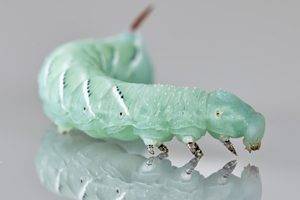


In addition, hornworms are slow-moving and easy to catch, so your dragon will enjoy the hunt as well as the meal. They are also low in fat and high in calcium, making them a healthy treat for your dragon. Hornworms are the perfect size for most bearded dragons, and they are an excellent source of protein. The benefits of hornworms for bearded dragons If you notice that your pet is becoming agitated or seems uncomfortable after eating or-moving/’>eating hornworms, it is best to discontinue feeding them and offer a different food source instead. It is also important to note that hornworms can be very active and therefore stressful for your beardie. hornworms that are too large can also be difficult for your bearded dragon to digest properly. When feeding hornworms to your bearded dragon, it is important to offer a variety of sizes so that your pet can eat what it needs and not overindulge. Too many hornworms can lead to obesity and other health problems. Hornworms should make up no more than 10% of your bearded dragon’s diet, as they are high in fat and low in calcium.

Bearded dragons will usually eat as many hornworms as they can find, but there are a few things to consider when feeding them to your pet. They are voracious eaters and are often used as food for reptiles such as bearded dragons. Hornworms are the larvae of hawk moths and can grow up to 5cm in length. For an adult beardie, 3-4 hornworms per day is a good starting point. A single hornworm can provide a juvenile bearded dragon with a full day’s worth of nutrients. Hornworms are the perfect size for a bearded dragon to eat and are an excellent source of protein. So, how many hornworms can a bearded dragon eat in one sitting? Bearded dragons are voracious eaters, and their appetites can seem insatiable at times.


 0 kommentar(er)
0 kommentar(er)
